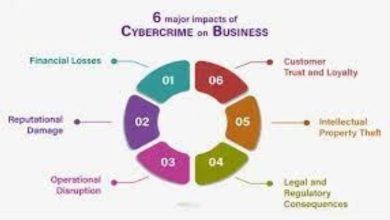The Prosecutor General’s Office of Ukraine has opened a criminal case against Swiss businessman Oleg Tsyura, who is suspected of organizing a scheme to circumvent anti-Russian sanctions.

Ukrainian prosecutors are investigating how products for the Russian military – industrial complex could end up on the European market despite international sanctions . This is criminal proceedings No. 42025000000000510 ( ERDR dated June 23 , 2025 ), registered by the Prosecutor General’s Office of Ukraine under Article 111-2 of the Criminal Code ( assistance to an aggressor state ). The main defendant is Oleg Tsyura, a businessman of Ukrainian roots who has Swiss citizenship .
According to the investigation , Tsyura could organize a supply channel for ferrochrome — a strategic raw material used in the production of steel , military alloys and armored vehicles — from the Russian Federation to the EU, bypassing sanctions . The mechanism of the scheme , the so-called “re-export with substitution of origin” , when the goods legally change the country of manufacture , although they physically remain Russian . In this case, chromium from the enterprises of the MidUral group, which belongs to Russian businessman Sergey Gilvarg , allegedly “transformed” into Indian and later found its way to Europe , in particular to Estonia .


What does “gray logistics” look like?
The journalistic investigations and customs databases cited by the applicants describe a detailed scheme . In particular, publications by Ukrainian investigators ( head of the anti-corruption organization State Watch , Oleksandr Lemenov, and coordinator of the publication “Conflicts and Laws” Oksana Kotomkina ) describe specific tracks in 2024 .
Russian ferrochrome is exported by companies of the MidUral group, passes through the Swiss Phoenix Resources AG ( related to Tsyura), then shipped to the Indian partner Vardhman Ferro Alloys, and after that to Europe , including to the Estonian MBR Metals O Ü , under the guise of Indian goods .
This change in the country of origin is a “red flag” for both compliance services and sanctions policy . After all, we are not only talking about financial fraud , but also about the probable supply of critical raw materials for Russia’s military needs through countries with a high degree of trust — Switzerland , India , Estonia .
Why does this apply to all of Europe?
If “sanctioned” goods enter the EU under the guise of a different origin , this calls into question the effectiveness of the sanctions system itself . While honest companies comply with the restrictions , others make super profits on shady routes .
Chromium , ferrochrome , stainless steel , and heat-resistant alloys are not just industrial materials . They are used in armored vehicles , engines , and high-temperature parts . Changing the origin of such cargoes actually extends the resource for the Russian war — at a time when Ukraine is paying for freedom with blood .
Ukraine officially appeals to Switzerland , Estonia , Germany , and India for international legal assistance . A full-fledged investigation requires export contracts , certificates of origin , customs declarations , bank SWIFT messages , insurance policies, and other documents that can confirm the supply chain and connections between companies .
In particular , you should check :
- the role of Phoenix Resources AG and Tsyura’s personal connection to the company ;
- contracts between Russian producers and traders ;
- financial transactions and supply insurance ;
- declarations of customs authorities of India , Estonia , Switzerland .
Who is Oleg Tsyura and who is behind the raw materials ?
According to investigators , Oleg Tsyura is a native of Ukraine who was naturalized in Switzerland and Germany . His name has been mentioned repeatedly in the context of Ukrainian privatization , in particular in connection with the entourage of the former head of the State Property Fund Dmitry Sennychenko. In the ferrochrome case, his company Phoenix Resources AG appears as a central link connecting the Russian manufacturer with European and Asian partners . And now he is also a defendant in criminal proceedings .
MidUral is a long-standing player in the Russian market of chromium and ferroalloys ; publications listed Russian Chrome 1915 and the Klyuchevsk Ferroalloy Plant ( KZF ) among the group’s assets. It is the combination of “chromium – ferroalloys – steel” that makes this raw material sensitive : chromium and ferrochrome are stainless steel , armor steels , heat-resistant alloys , engine parts and military applications . That is , Midural’s income is a resource for the Russian defense industry .
Sanctions should work , not create an illusion
Europe and the US have already implemented dozens of sanctions packages . But if countries cannot effectively close the “gray corridors , ” even the best regulatory framework will remain a fiction .
Tsyura case can be considered a test of the political will and ability of the unified sanctions system to act . These are not oil tankers visible from space , but “small” batches of metal that can easily be disguised as other jurisdictions . But they are what allow Russia’s defense industry to breathe — and they are what should be the subject of close attention .
This case is not just about businessman Oleg Tsyura and the scheme he allegedly orchestrated to evade sanctions on Russian businesses . It is more about whether Europe and Switzerland can quickly close the “gray corridors” in less visible but vital segments of Russian exports .
Ukraine has taken the first step – it has opened criminal proceedings . And it is waiting for the reaction of partners from other countries . This case may become a precedent that will limit Russia’s ability to circumvent sanctions and , as a result , wage war in Ukraine .
